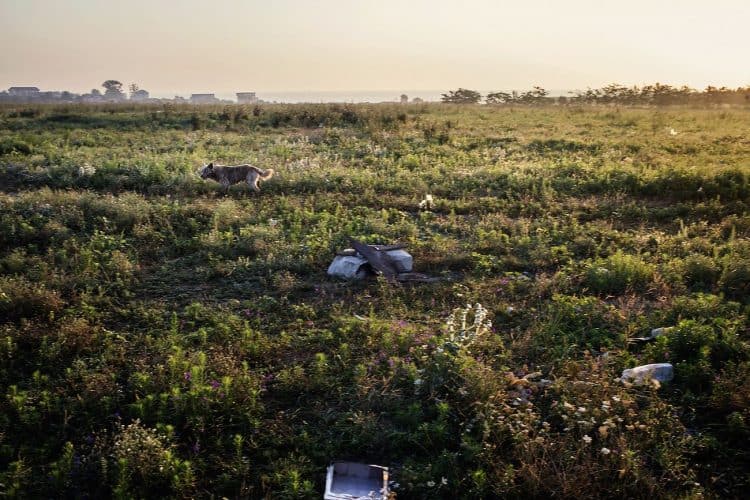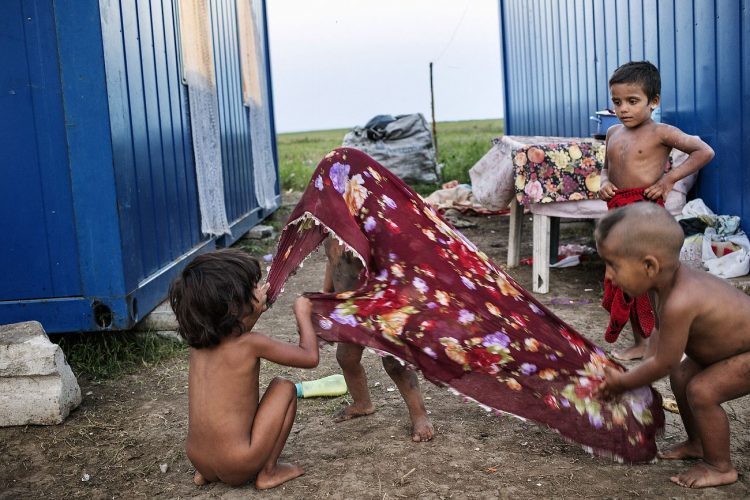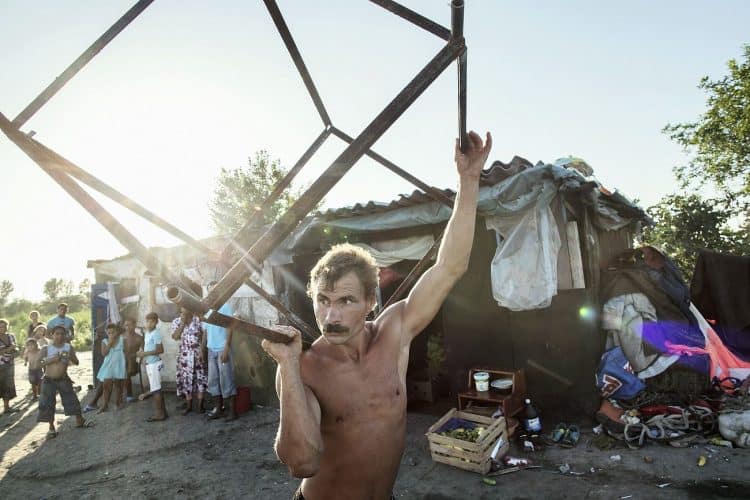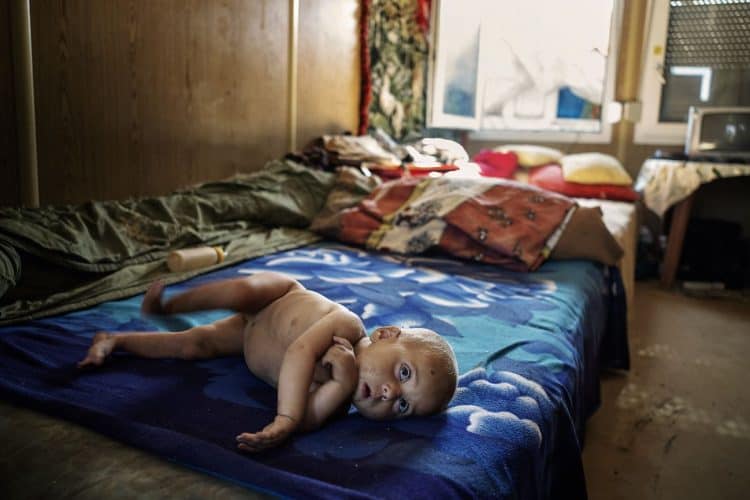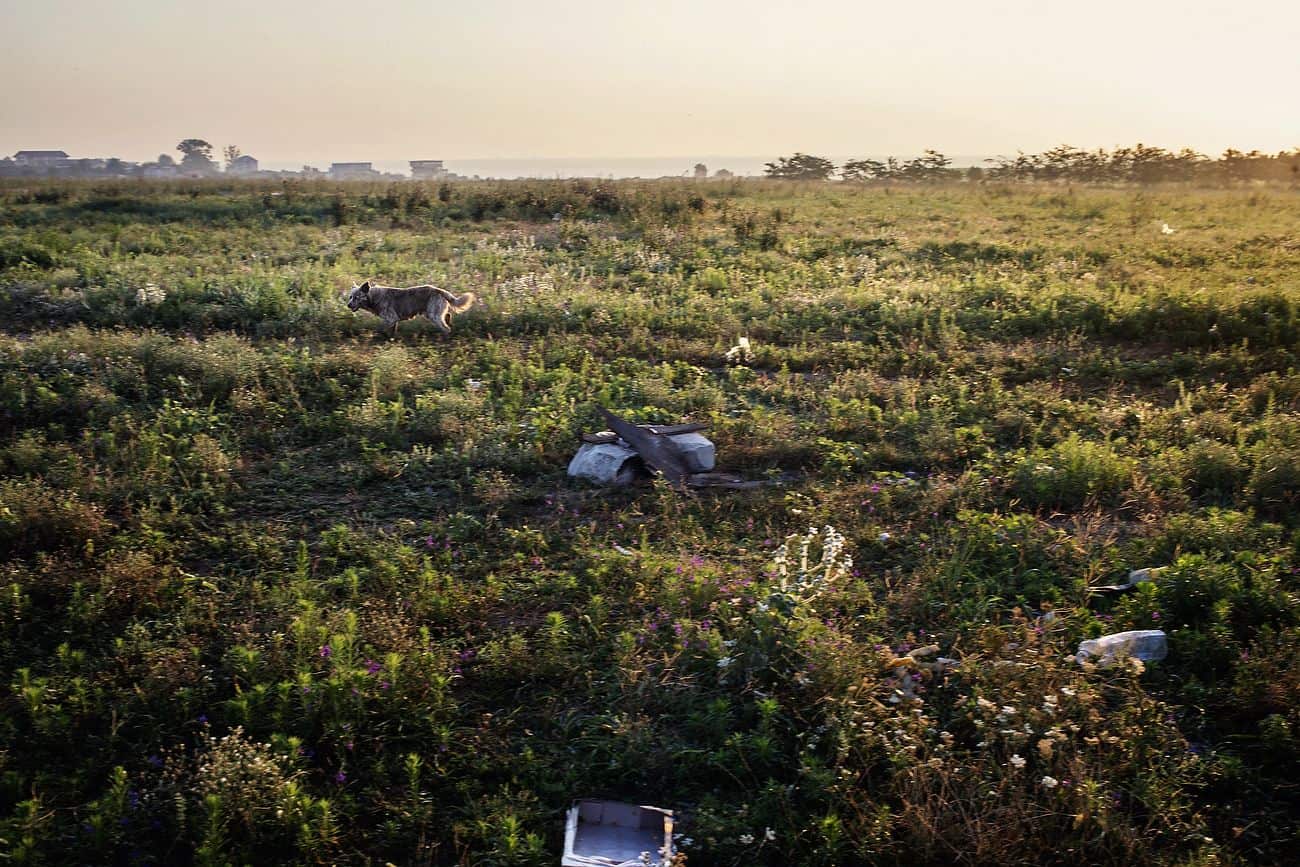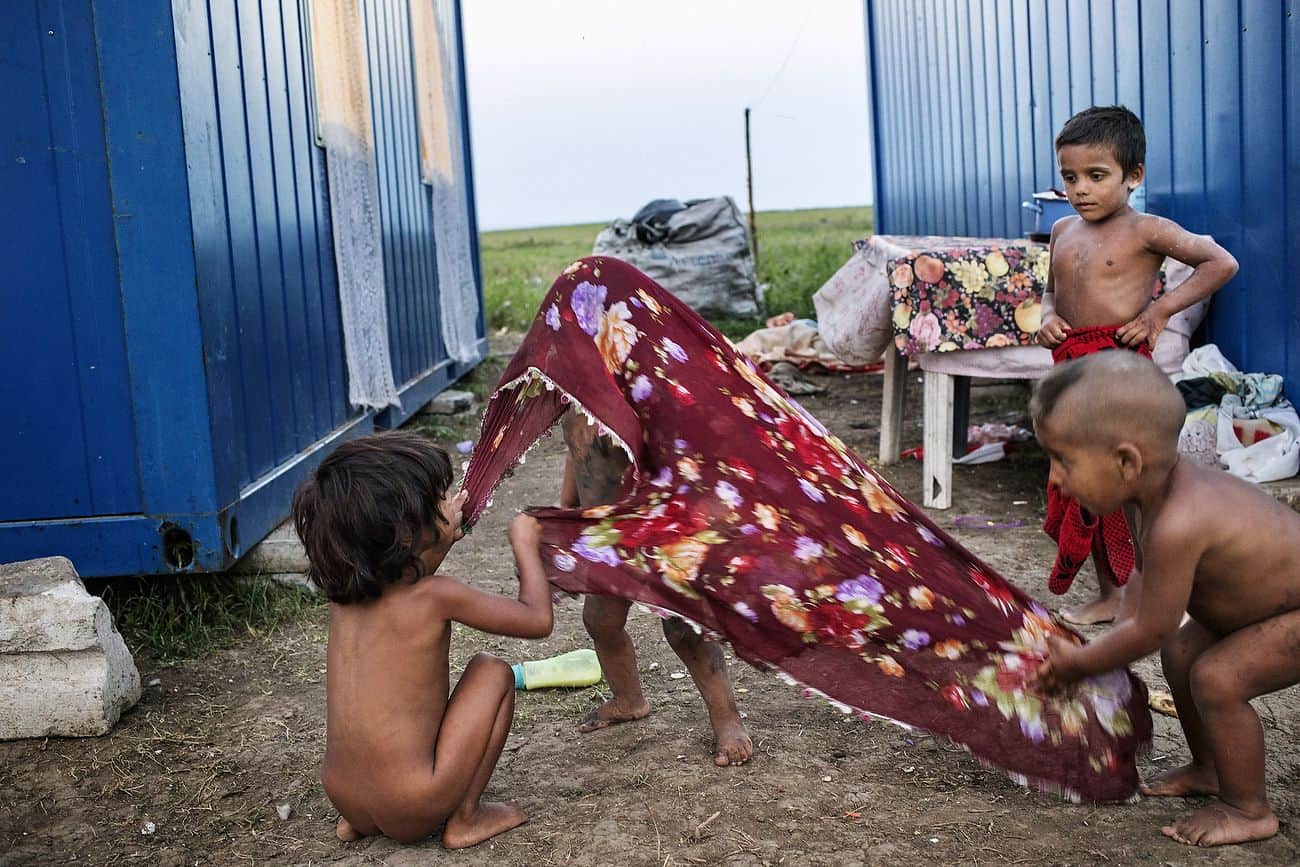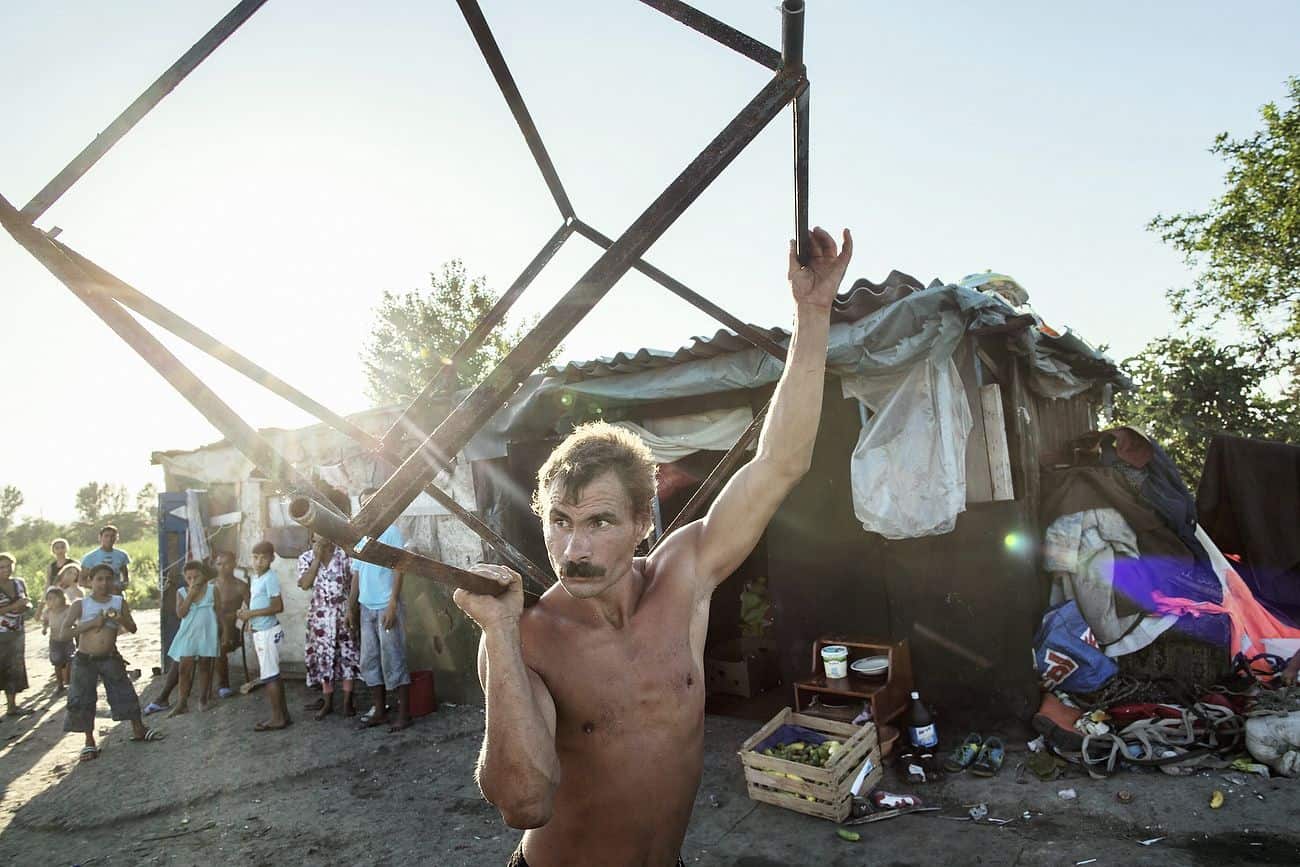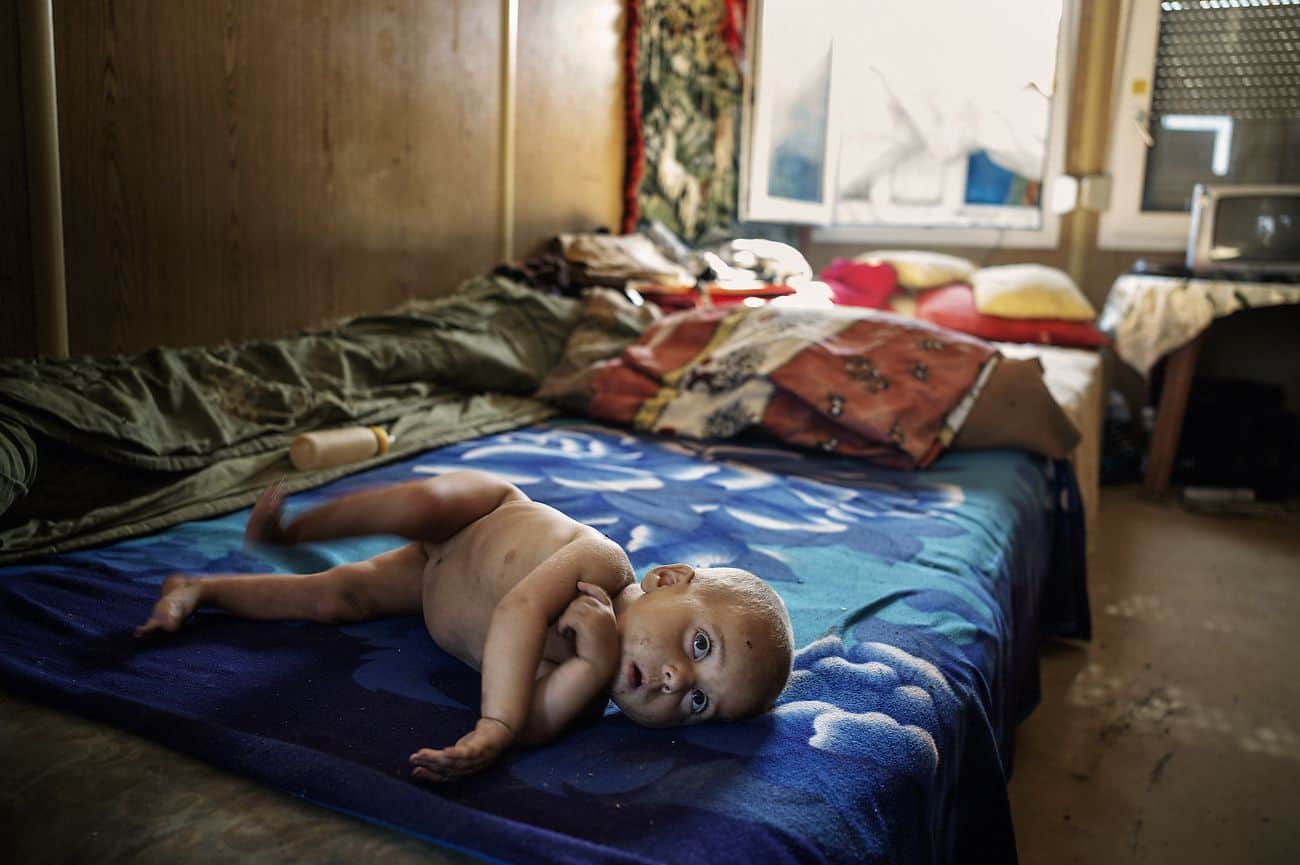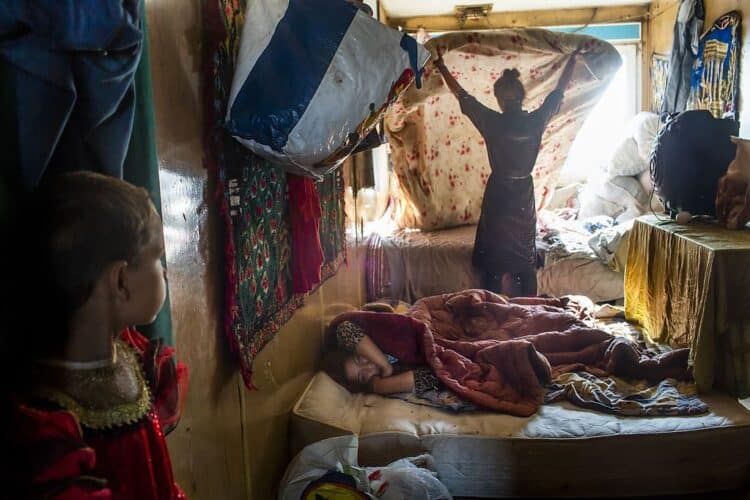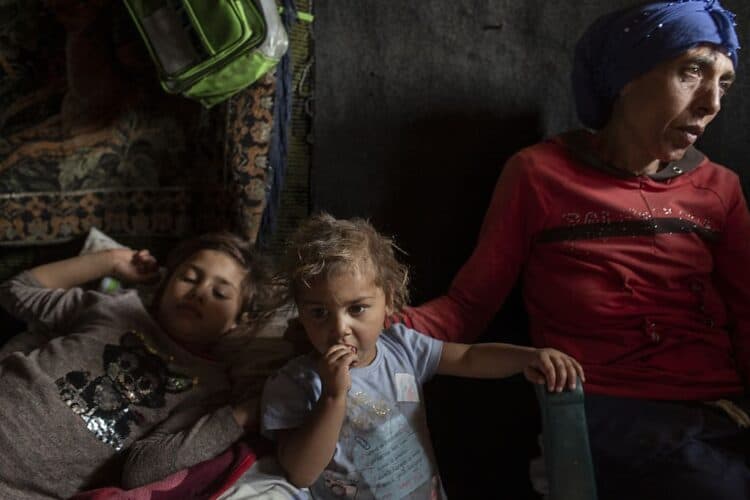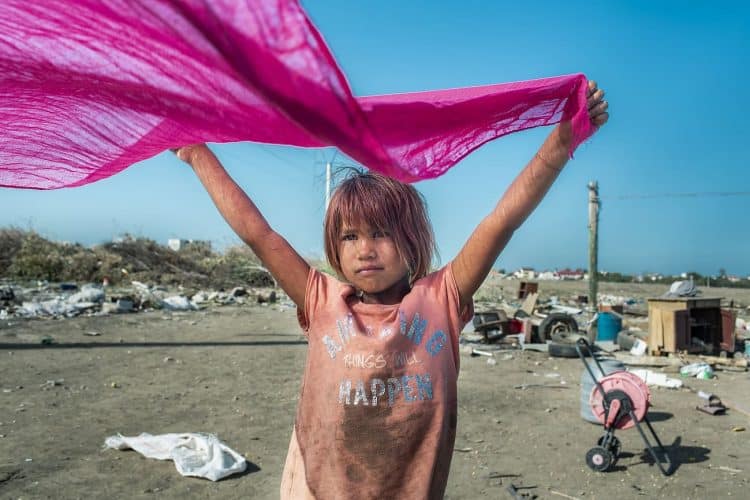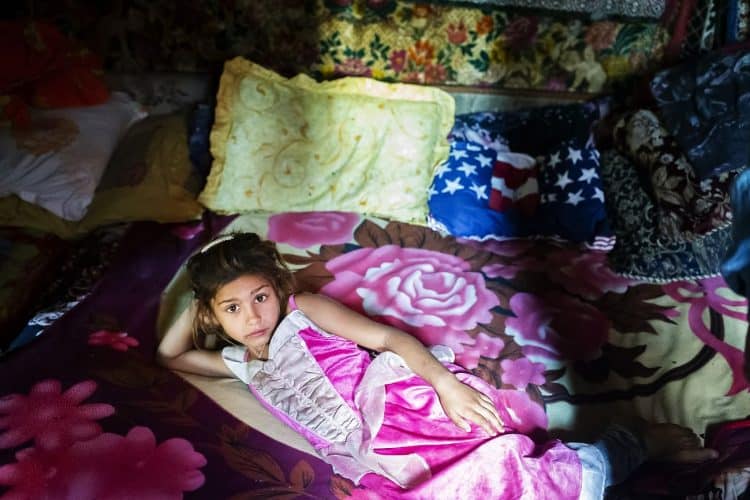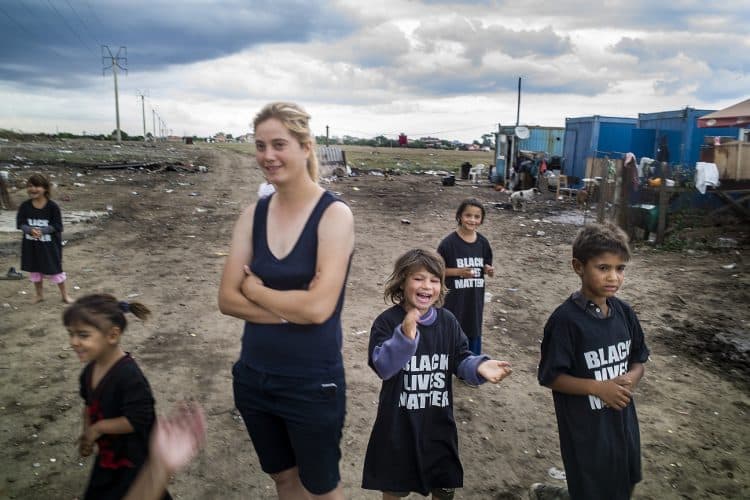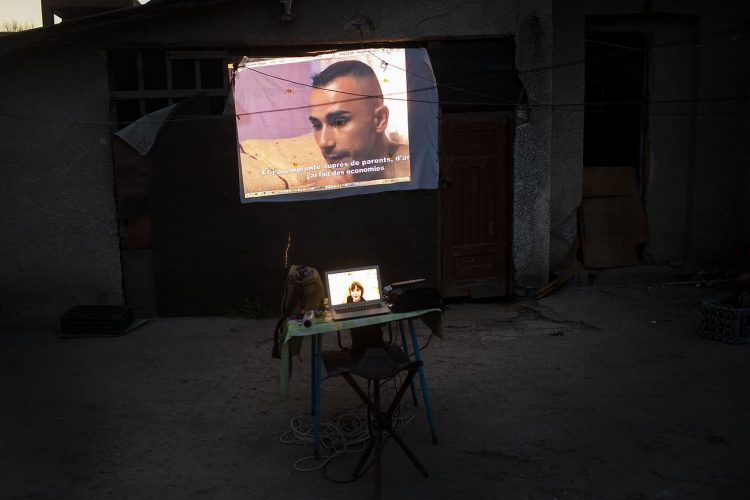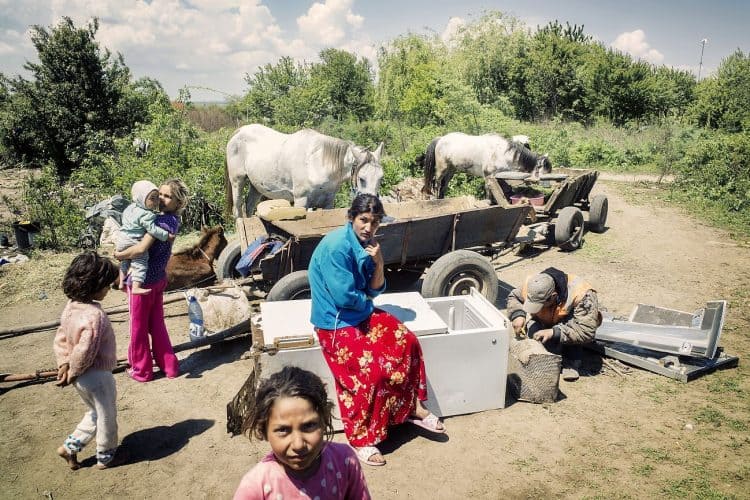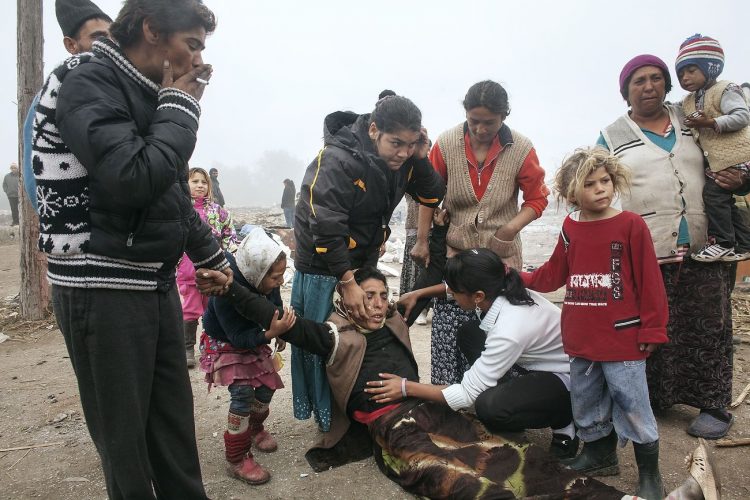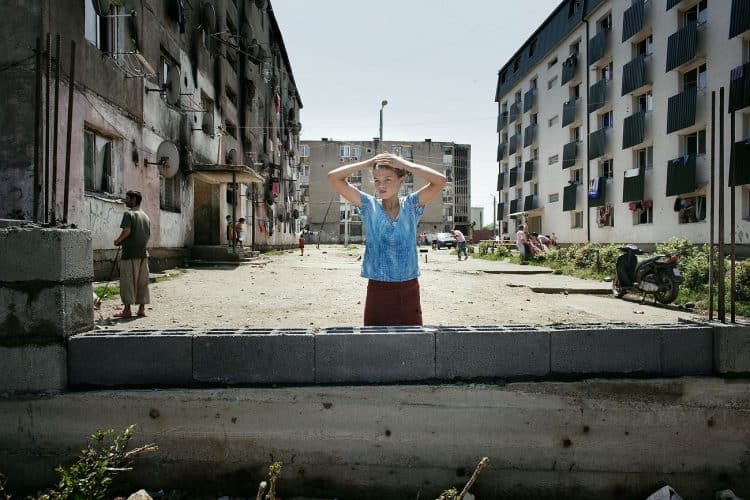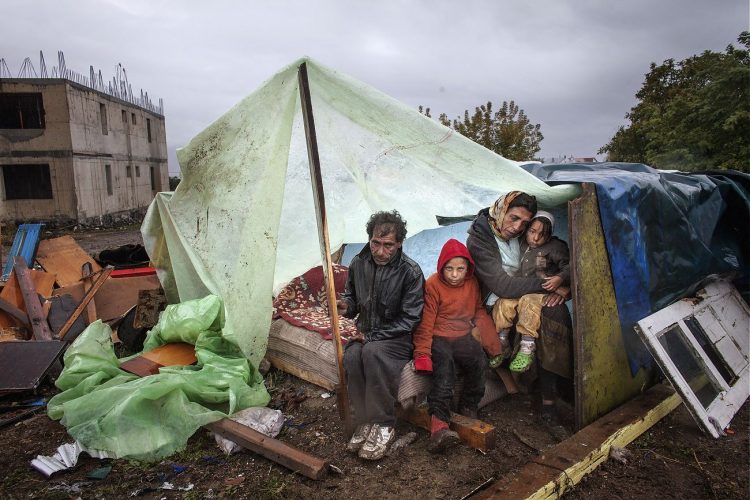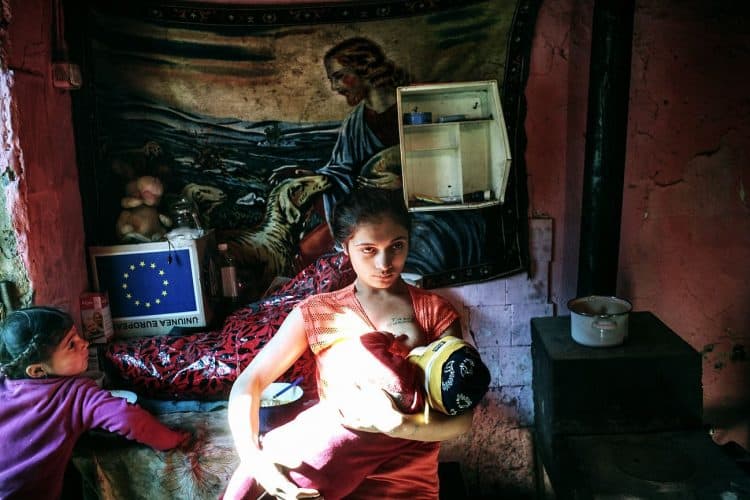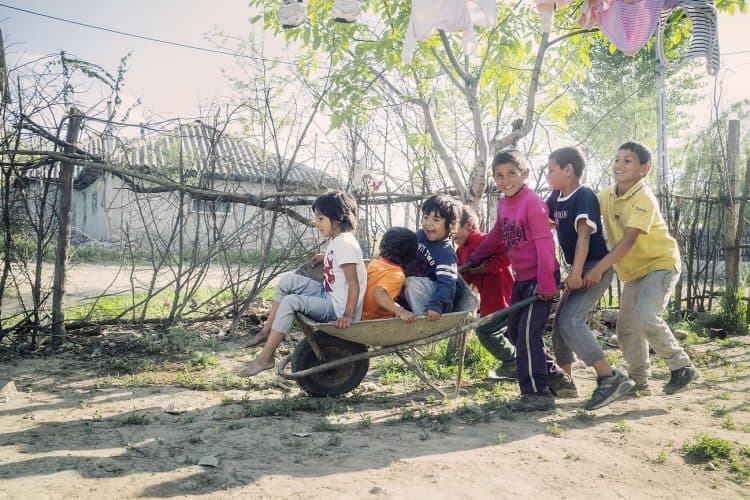In the summer months they survive from one day to the next, the same as they have for decades, peddling on the beach the therapeutical mud they collect from the Techirghiol lake nearby. They collect this mud in drums, strain it through a curtain to cleanse it of impurities, pour it into plastic bottles, which they gather from the streets and then sell for 2 lei a bottle.
They don’t have a business plan nor do they raise their prices depending on demand – they simply sell enough to be able to put food on the table that day. They are constantly harassed by local police, and the amount of the fines they receive is thousands of times greater than what they earn from the bottles they sell.
They have the right to an identity card, but they do not receive one. They have the right to suitable housing, but all they get, if they are not thrown into the street, is a metal container at the edge of a rubbish dump.
